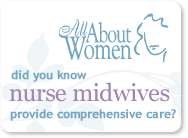Rays of Hope Expands Breast Cancer Research in W. Mass
The providers and staff of Baystate Ob/Gyn Group, Inc. are pleased to learn how the Rays of Hope continues to contribute to breast cancer research right here in Western Massachusetts. Baystate Health proudly announced in April, 2011 that 1.5 million dollars from the Rays of Hope Walk Towards the Cure for Breast Cancer would be used over a period of five years to establish the Rays of Hope Center for Breast Cancer Research at the Pioneer Valley Life Sciences Institute (PVLSI).
As a women’s health practice, we couldn’t be more enthusiastic about the mission of the Rays of Hope to find a cure for breast cancer. From support services for each individual woman to complex research projects, the Rays of Hope plays an integral part in our healthcare community where medical innovation thrives. Dr. Howard Trietsch of our practice stated “having such a wonderful resource in the greater Springfield area is an indicator of our community’s unique role in the future of healthcare. In an era of healthcare reform, it is important to maintain sustainable, meaningful research projects that have the potential to yield life-changing findings for millions of women and men. It is invigorating to have such an amazing asset in our very own healthcare community here in Western Massachusetts.”
Our physicians and staff alike are proud to support the Rays of Hope through sponsorship of their events and contributions from BOGG dress down days. Our own “Team BOGG” is proud to walk in the annual October Rays of Hope walk/run, and BOGG is proud to serve as a water stop sponsor on the five mile route. To learn that 1.5 million in funds raised from the annual walk will be used to development an important research center is a fantastic reward for all of supporters of the Rays of Hope. We look forward to continuing to support the Rays of Hope as they begin the next chapter of breast cancer research in the Pioneer Valley.
Read the full announcement from Baystate Health…
Read more about BOGG’s community involvement, including Rays of Hope support…
Visit the Rays of Hope website...
This is also listed in these categories...
Urinary incontinence (leakage of urine) is a very common condition affecting at least 10-20% of women under age 65 and up to 56% of women over the age of 65. Learn more about incontinence and overactive bladder and how we can help ...
Our diverse practitioners have exclusive skills that distinguish us as leaders in women’s health. Our use of modern technology and vigilant awareness of advances in women’s health provide you with complete access to exemplary options for prevention, diagnosis, and treatment.







